#pls click the link to get to the whole document i posted on google drive
Text
John Walker: a study in story framing, character archetype, established canon details, and audience manipulation
There’s been a ton of discourse surrounding the character of John Walker, everyone has a lot of opinions. But having read many articles, posts, tweets, and watched reaction channels and video essays, I have found a common theme among them: a fundamental misunderstanding of the character due to the story framing.
In fact, the character of John Walker that exists in fandom discussions is more of a projection of what people think he is and what people want him to stand in for rather than the actual canonically established character that exists in the story of The Falcon and The Winter Soldier. This is why I have decided to write this post along with an episode-by-episode breakdown, because I think John Walker the character has been completely eclipsed by John Walker the symbol, lost underneath the iconography that he’s been associated with and not really given a fair look as an individual person.
I should make it clear upfront; it is not my intention with this to tell people how they should feel about a character. Whether you agree with my points or not doesn’t really matter. My hope is that this at the very least provides you with a different perspective on the character and his motivations. Maybe have you consider him in a new way.
So, let’s start from the beginning.
--------------------------------
EPISODE 1
Story framing is important, it effects our perspective as an audience, and it is deliberately controlled by the writers and filmmakers to manipulate certain emotions and impressions out of us. The Falcon and The Winter Soldier expertly does this from the very beginning by framing John Walker immediately as someone whom we should not want.
Because the music is mournful and ominous despite the celebratory occasion shown on TV.
Because Sarah is upset.
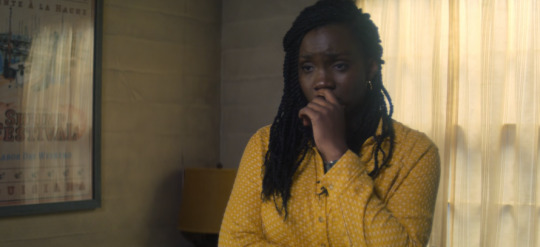
Because Sam has his fists clenched and is unhappy and suspicious, and then closes his eyes in upset.
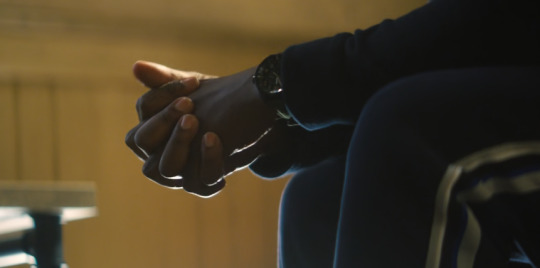
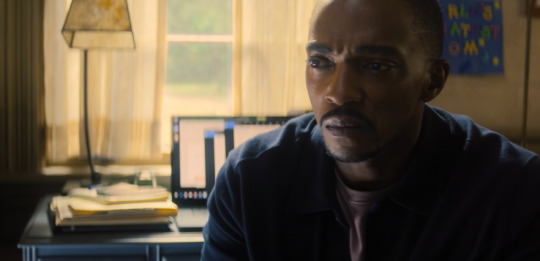
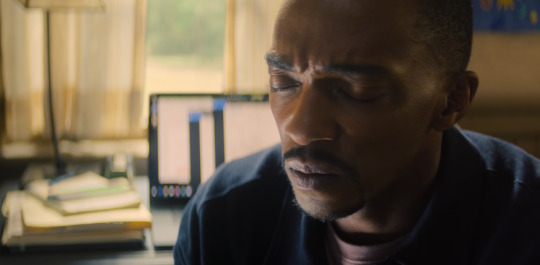
Because when dialogues like this is delivered, the show is purposefully playing into real life iconography and feelings that already raises our hackles.

Because Sam retired the shield and the hero position, so when someone else seemingly carelessly and casually steps in waving like a propaganda piece with a gun on his hip, and a grey flag symbol that looks so close to the thin blue line flag used by cops, there is something unsettling to us even if we didn’t consciously pick up on it, we just know that it goes against what we want and what our main protagonist wants.
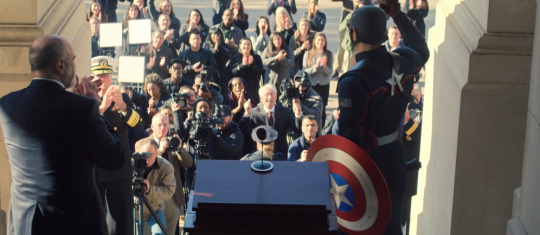
Because this strange person in a Cap costume winking looks like a jerk. We didn’t ask for this.

As it’s always said, first impressions are important. How someone first perceives you decides how someone might judge anything that you do. If someone thinks you’re an arrogant jerk, then anything you do will be colored by that impression and they will never think well of your intentions. But if their first impression of you is kind and caring, then any mistakes you made is automatically given leeway because your intentions would be well considered. And in one fell swoop, the show firmly planted into the minds of every single person watching that John Walker is an arrogant jerk espousing propaganda no one wants and everything he does is automatically suspect and questionable.
In fact, they even go the extra step to make that very clear by how the cast credits is used. Notice the difference between the image of Walker in Episode 1 and Episode 2-6?
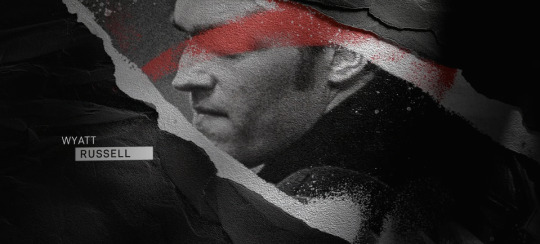
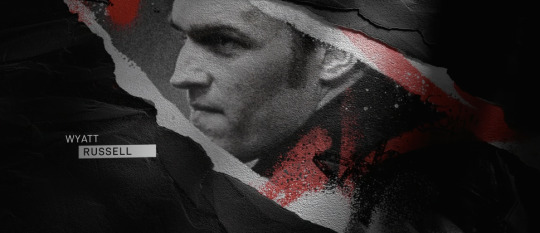
The red mark over his eyes, blocking him from us, not only feels foreboding, it feels as if it’s warning us.
So, when I say that John Walker was from the beginning set up to fail, it’s because he was, the story intended for it to be. We have to hate, question, suspect, and think the worst of Walker in order for Sam’s eventual reclaiming of the shield to mean anything or have that emotional catharsis. Because nobody wants to see Sam take the shield from a nice dude, it would be bittersweet or even mean, but if the story tells us that this guy is someone we can dislike or hate right off the bat because there is something vaguely “bad” about him, then we would root for Sam to take that shield.
There is a reason we don’t get Walker’s perspective at all in his introduction. He’s just this stranger we’ve been programmed as an audience to hate. We are not treated to Walker waiting to go outside and feeling nervous, or Walker doubting himself or perhaps even not wanting to take up the shield at first when it was given to him. The purposeful lack of his perspective is done so we only feel the weight of emotions from the Wilsons being upset, because we must relate to the protagonists.
Walker is not the hero of this story, he’s not the protagonist of this story, if he was, then the story would have framed his unveiling as Captain America in a completely different way, and we would have been treated to a sympathetic look at what he was feeling about taking on the shield, we would have had an inside look at his mindset before he walked out there and looked into that camera and winked. But because we the audience lack that important context that was deliberately kept away from us, our views on Walker formed and solidified without it, and then we all stewed on those feelings for a whole week.
By the time Episode 2 rolled around to open with Walker’s perspective, the damage was already done, it was too late, because people had already made up their mind about what kind of a person he was, and even those who might have given him a chance was just waiting for the other shoe to drop.
The show had very clearly made sure that John Walker was always going to have an uphill battle in the eyes of the fans, however fairly or unfairly. And that deliberate and purposeful removal of his perspective and context would be the key to how the character will be misread. Because the reality is, Walker hasn’t even done anything wrong yet and people have already made assumptions just because of one wink, just because of his mere presence. There was no objective consideration that Walker winked because he understood having to put on a cheerful public facade, no consideration that he could have been told to play along nicely for the cameras and directed to look there and wink, no consideration that he didn’t ask for this job but was ordered to do so and is as much a “victim” of the government as Sam. Because the show had already used every trick in the book to make us feel bad and ominous about his presence, the audience would automatically assume the worst.
CLICK THIS LINK TO CONTINUE TO EPISODE TWO AND THE REST OF THIS 219 PAGES AND OVER 28K WORDS ANALYSIS
#john walker#wyatt russell#the falcon and the winter soldier#the falcon and the winter soldier meta#tfatws#tfatws meta#mcu#pls click the link to get to the whole document i posted on google drive#you can download the whole pdf if you want#this is a VERY LONG analysis#don't say i didn't warn you
321 notes
·
View notes